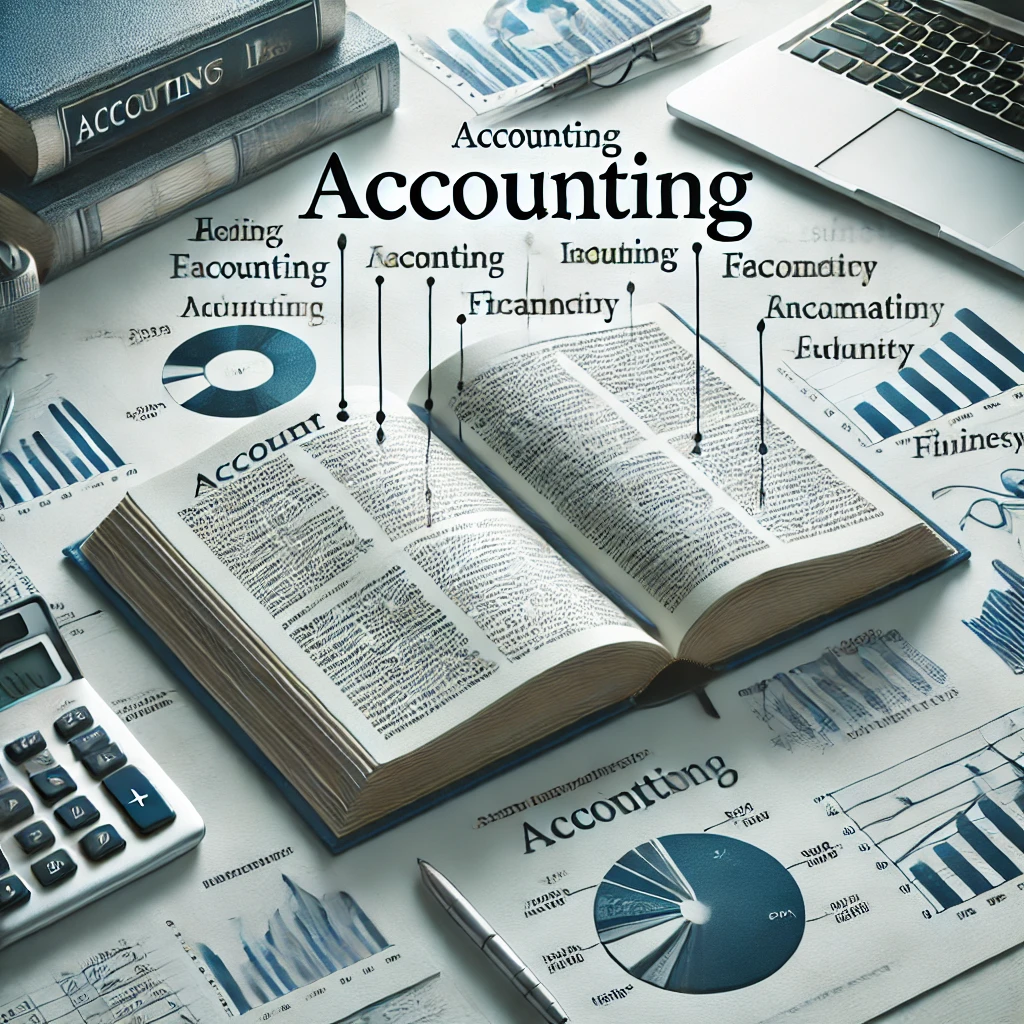
Accounting is the systematic presentation of financial events to organizations and stakeholders through the preparation of financial reports, decision-making, and strategic planning. Accounting has been presented in many different ways in the field of study over the decades, and renowned scholars and well-known individuals have adapted and defined accounting in multiple ways. Accounting has been defined in different ways by different authors and researchers, which we will look at and discuss below.
- American Institute of Certified Public Accountants (AICPA)
The American Institute of Certified Public Accountants has defined accounting as: “the art of recording, classifying and summarizing in a significant manner and in terms of money, transactions and events which are, in part at least, of a financial character, and interpreting the results thereof.” This definition emphasizes that accounting is an art because it involves keeping records in a systematic, orderly, and accurate manner, making tools like QuickBooks Online, and reporting them meaningfully.
- American Accounting Association (AAA)
The American Accounting Association (AAA) has a more general definition: “Accounting is the process of identifying, measuring, and communicating economic information to permit informed judgments and decisions by users of the information.” According to the AAA definition, financial transaction information is analyzed and presented in a way that helps stakeholders reach fair decisions.
- Anthony G. Hopwood
As identified by one of the most renowned accounting scholars, Hopwood, 1983, “accounting is a social practice that shapes organizational and societal behavior.” Here he defined accounting as a societal & organizational behavior practice.
Consider reading “Accounting Principles” by Jerry J. Weygandt available here for a more detailed look at some of these concepts. This book provides a fundamental understanding of accounting principles that every professional and student needs to know.
- Mclaney and Atrill (2019)
An Introduction, McLaney and Atrill have defined accounting as, “the process of recording, classifying, summarizing, and interpreting financial transactions of an organization.” In this definition, the author describes accounting as a tool for recording and analyzing financial information, considering leveraging Xero Accounting Software, a user-friendly tool designed for SMEs. to explain the status and performance of accounting.
For those interested in accounting fundamentals, Mike Piper’s “Accounting Made Simple” books can be an excellent example.
- Horngren et al. (2009):
In their popular book, “Introduction to Financial Accounting”, the authors have explained it as, “the art of recording, classifying, and summarizing in a significant manner and in terms of money, transactions and events which are, in part at least, of a financial character, and interpreting the results thereof.” Horngren and co-authors welcome the term “art” in accounting and characterize accounting as scientific and systematic. They state that accounting has ample scope to explain and represent financial events and transactions. Students can use Horngren’s Financial and Managerial Accounting (Global Edition) for more knowledge.
- Chandra and Chandra (2009):
According to Chandra and Chandra, “Accounting is the process of recording, classifying, summarizing, and analyzing financial transactions to provide useful financial information for management, stakeholders, and regulatory authorities.” This definition highlights the role of accounting in decision-making from the top to the bottom of the organization. For deep financial analysis, Zoho Books is a powerful accounting tool that offers real-time interpretation of data.
- Weygandt, Kieso, and Kimmel (2018):
In Financial Accounting, Weygandt, Kieso, and Kimmel describe accounting as, “the process of identifying, measuring, and communicating financial information about an organization to various stakeholders.” This definition focuses on identifying, measuring, and communicating financial information to managers, investors, lenders, and other stakeholders. This comprehensive book on “Financial Accounting” written By Wigandt, Coyes And Kimmel will further enhance one’s accounting knowledge.
- Accounting Concepts and Principles by Needles (2013):
Needles defines accounting as, “the process of identifying, measuring, and communicating financial information about an economic entity to users of that information, such as investors, creditors, and regulatory agencies.” The immediate definition linked accounting to its users and emphasized its role as a means of communication. For anyone managing business finances, FreshBooks is a highly recommended platform for simplifying complex tasks.
- Parker and Crawford (2014):
In their book Financial Accounting: An Introduction to Concepts, Methods, and Uses, Parker and Crawford define accounting as, “the process of measuring, interpreting, and communicating financial data to interested parties to assist them in making decisions regarding resource allocation.” Their definition emphasizes that accounting influences decision-making because it is concerned with allocating resources in any organization.
For an easy, beginning accounting reference for practical applications, see Accounting-All-in-One for Dummies.
- J. R. Edwards (1984):
J. R. Edwards defines accounting as, “the art of recording, classifying, and summarizing economic events in a manner that provides relevant information for making decisions.” Edwards’ definition guides the contribution of accounting, which plays a significant role at the operational and strategic levels. Complementing this definition, Wave Accounting Software is an excellent free tool for small businesses looking to manage their finances efficiently.
11. Zimmerman (2008):
Zimmerman describes accounting as, “the process of identifying, measuring, and communicating financial data that serves as a tool for decision-making in an organization or business enterprise.” This definition highlights the powerful role of accounting in providing data that can be used to make decisions and to effectively manage and operate an organization. For advanced knowledge, the book “Accounting Theory” by Eldon S. Hendriksen provides an intellectual perspective on accounting principles.

Key Elements of Accounting from the Definitions
From the definitions mentioned above, we can briefly highlight the essential elements of accounting.
Recording of Financial Transactions: The entire work of accounting begins with recording financial transactions correctly and accurately. Earlier this was a time-consuming task but now it is possible to record them very easily and in a short time using application software like Tally ERP 9 for work and convenience.
Classification and Summarization: After recording transactions, they are classified into different categories – income, expenses, assets, liabilities, ownership, etc. The task of dividing them into different categories is done automatically through Sage 50 Cloud. Sage 50 Cloud can be used for any organization, small or large.
Measurement and Communication: The main purpose of accounting is to accurately assess the assets and liabilities of the organization and communicate all financial information to stakeholders. The NetSuite by Oracle system is capable of providing high-quality reporting, so it will prove to be very useful for any organization.
Transparency and Accountability: In any business, recording financial information accurately and reporting it to stakeholders promptly provides greater transparency to the organization. KashFlow a cloud based accounting solution is now becoming quite popular for enhancing transparency in financial operations.
Decision-making support: Accounting provides important information for an organization’s financial decisions. PlanGuru helps in strategic planning by providing budgeting features and forecasts.
Recommended Books and Resources
In addition to the definitions and tools above, here are some books and online courses to deepen your knowledge of accounting:
- “Principles of Accounting” by Belverd E. Needles– A comprehensive guide into the principles and practices of accounting.
- Coursera’s Financial Accounting Course: Flexibility in Online Learning to Master the Basics of Accounting Access the course here.
- “The Accounting Game: Basic Accounting Fresh from the Lemonade Stand”—a” beginner-friendly approach to learning accounting.
Conclusion
Accounting is the process of systematically presenting financial information that enables any organization to make business decisions. Platforms like QuickBooks, Xero, and FreshBooks, as well as educational resources like Coursera and Accounting for Dummies, can benefit you whether you are an entrepreneur, student, or professional. The right tools, resources, and books will take you a long way toward achieving your goals.
